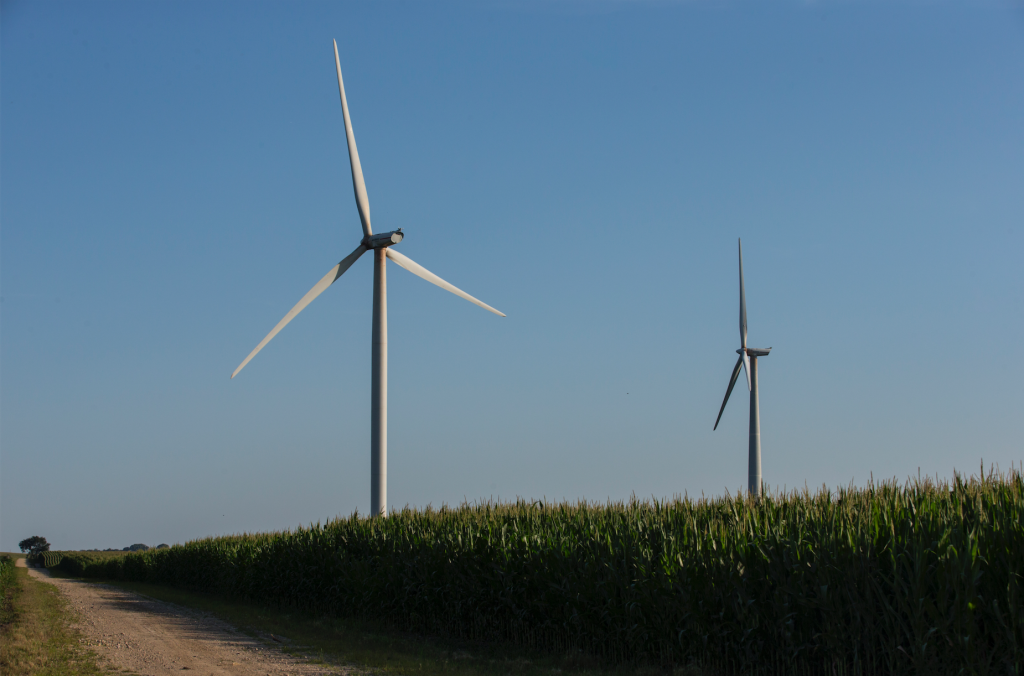UI research finds no hazards from wind turbines
UI professors authored a paper that concludes that wind turbines do not pose health risks.
The Pioneer Grove Wind Farm is seen in Mechanicsville, Iowa on Wednesday, July 11, 2018.
February 13, 2019
Although they may tower alongside highways, recent research has found Iowa’s wind turbines are actually gentle giants.
University of Iowa professors, in collaboration with the Iowa Environmental Council, have written a paper concluding that there is no evidence that the sound produced by wind turbines poses a health risk to neighboring residents.
Peter Thorne, a UI professor and the head of the Occupational and Environmental Health Department, and David Osterberg, a professor emeritus of occupational & environmental health, noted that it’s important to get hard science into the right hands.
Thorne said the issue was brought to his attention by the Iowa Environmental Council, and he heard from county governments that some citizens in rural areas are becoming convinced that wind turbines are hazardous to their health.
According to the paper, while the noise generated by wind turbines may be annoying for local residents, the researchers did not find true health hazards caused by the turbines.
RELATED: Helton: The Environmental Protection Agency no longer protects the environment
Osterberg said they’re trying to help supervisors learn more about health effects from wind turbines. He said he isn’t sure people’s minds can be changed, so the paper was directed at policymakers. He also said in states such as Ohio and Michigan, there’s some resistance to initiatives involving wind power and solar power for differing health reasons.
“People are trying to find explanations for a lot of things; you generally do that when something happens, and your life is going to change, and you look for information that explains why it shouldn’t be,” Osterberg said.
The paper cited a study by Paul Slovic that found people could perceive technology as a danger if it is applied without their consent and the potential risks are not equitable.
Thorne said there is a demographic of the public he would like to reach, people on the fence who want an authoritative source of information and who could be moved if presented with a consistent message that addresses their concrete concerns.
“Our duty as public-health professionals is to provide a voice of reason,” he said.
Thorne hopes that when counties make decisions on matters such as constructing wind turbines, they include the public in the decision-making process.
“Evidence shows when people are part of the process, they’re more accepting of the outcome,” Thorne said.
Stratis Giannakouros, the director of the UI Office of Sustainability, said the benefits of reducing mercury and CO2 emissions for the public health outweigh potential annoyances.
“Anytime you can replace fossil-fuel combustion with wind, you get a net positive public-health impact,” Giannakouros said.
According to the paper, in the course of 18 years, Iowa’s electricity generation from wind turbines rose from nearly none to more than 7,000 megawatts of power.
Osterberg said he had been thinking of this subject for around a year and that Thorne’s expertise in the policy aspect of environmental health helped make the paper possible. Thorne as also served as chairman of the Science Advisory Board for the EPA.
“The important thing is we’re not burning coal,” Thorne said. “There are much more safer options than coal power.”







